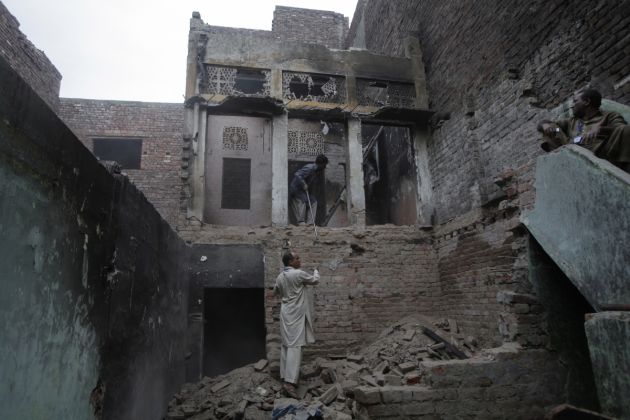Churches urge EU to pressure Pakistan on blasphemy law

Church groups have urged the European Union to raise questions with the Pakistan government concerning growing religious intolerance and persecution of religious minorities in Pakistan.
Representatives of church and ecumenical organizations from Pakistan and different European nations recently met in Brussels to talk about the issue at the headquarters of the European Union.
They spent two days of advocacy, lobbying and dialogue with various bodies of the EU in Brussels on June 24 and 25 about the laws which are often used to target non-Muslims in the country. The highest penalty for those found guility of breaking the law is death.
In Pakistan, 96 percent of the 193 million people are followers of Islam, most of them Sunni Muslims and Christians and Hindus are tiny minorities.
"Partners of the Pakistani government should take the initiative to discuss this with the leaders of the new government of Pakistan and urge them to repeal the controversial provisions of the blasphemy law," said Bishop Samuel Azariah, moderator of the Church of Pakistan and a member of World Council of Churches executive committee.
In most recent cases a 14-year-old Pakistani Christian girl who was arrested for alleged blasphemy last year and forced into hiding for fear of her life moved to Canada, fearing for her life, media there reported on Sunday.
Islamic parties in Pakistan strongly resist calls for change in the blasphemy laws and prominent political figures such as Salman Taseer (the former governor of Punjab) and Shahbaz Bhatti (the Federal Minister for Minorities) have been assassinated for their opposition to them.
The Brussels meeting was organized by the Commission of the Churches on International Affairs of the World Council of Churches and was facilitated by the Church and Society Commission of the Conference of European Churches (CEC).
The meeting followed an international hearing on the "Impact of Blasphemy Law in Pakistan" initiated by the world church body in Geneva in September last year.
"When the State and constitution make preference on the basis of religion, they end up violating the rights of their citizens, said Peter Jacob, director of the Justice and Peace Commission of the Roman Catholic Church in Pakistan.
"The blasphemy law is one among other laws that form a whole system of discrimination against religious minorities in Pakistan," said Jacob. "The discrimination we find in the constitution and state policies translates into extremism and general intolerance in the society."
He noted that the civil society in Pakistan has reached a consensus on the misuse of the blasphemy law, and because of this, a repeal of the law should be considered.
At the EU meeting 15 representatives of ecumenical and church organizations held discussion with the European External Action Service of the EU, members of the European Parliament and diplomatic missions of various countries at the EU headquarters in Brussels.
They visited the European External Action Service and MEPs Dennis de Jong and Peter van Dalen, who are co-presidents of the European Parliament Working Group on Freedom of Religion or Belief (EPWG on FoRB).
The ecumenical team urged the EU to use its institutional and diplomatic contacts to address the deteriorating situation of persecution against religious minorities in Pakistan.
An increasing number of false cases have been registered there against religious minorities by using provisions in the country's blasphemy law.
Prof. Göran Gunner of the Church of Sweden said the EU-Pakistan strategic dialogue initiated in 2012 is an effective way for the two sides to be engaged in constructive discussions and to express shared views on regional and international issues of mutual concern.
"This mechanism should be used as an effective way to raise questions on human rights violations and persecution of religious minorities in Pakistan," said Gunner.